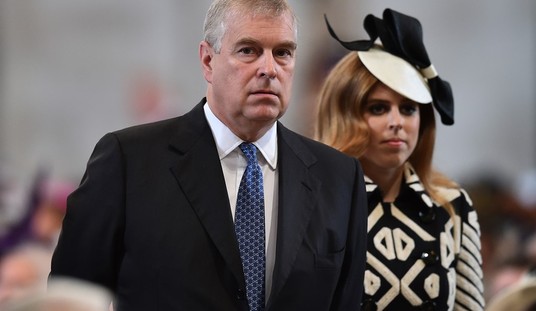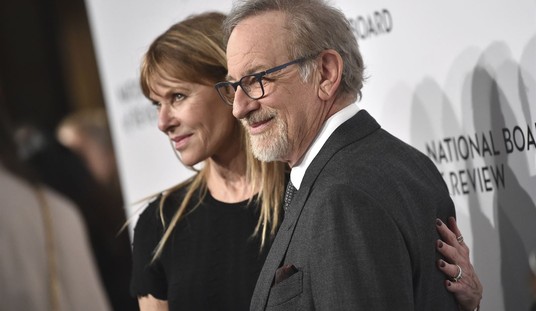The 2016 cycle began before the 2014 cycle ended, and the prospective presidential candidates long ago mobilized to hit the ground running as soon as the polls across America closed on Tuesday night. The results of the midterm elections have, however, lit a special fire under the inevitable Democratic nominee, Hillary Clinton.
A report in The New York Times on Friday morning revealed that the Clinton Machine is revving into high gear, but it also suggested that Hillary will burst out of the 2016 presidential gate with a whimper. The former secretary of state will cease to deliver paid speeches in the coming weeks and plans to, instead, engage in a “listening tour.” To whom will she be listening? Not the average voter, of course, but the moneyed classes; CEOs, union leaders, and advertising executives.
Oddly, this condition is hailed by The New York Times’ Clinton-watcher Amy Chozick as semi-optimal for the likely Democratic standard-bearer. Her dispatch revealing Clinton’s nascent 2016 campaign plans notes in the headline the midterm elections were not “all gloom” for the former first lady. One wonders if the headline writers even bothered to read Chozick’s story.
“A number of advisers saw only one upside for Ms. Clinton in the party’s midterm defeats,” Chozick wrote.
Before then, opinions had been mixed about when she should form an exploratory committee, the first step toward declaring a presidential candidacy, with some urging her to delay it until the late spring.
But over the past few days, a consensus has formed among those close to Mrs. Clinton that it is time to accelerate her schedule: She faces pressure to resurrect the Democratic Party, and she is already being scrutinized as the party’s presumptive nominee, so advisers see little reason to delay.
That’s… an upside? The party’s losses were so great, and the repudiation of a sitting Democratic president so complete, that Clinton is forced to now operate on a timetable not of her choosing. What’s more, the unavoidable appeals to the nation’s influential (and necessarily well-heeled) classes, which would have otherwise gone largely unnoticed by Democratic partisans, is now going to be heavily scrutinized in mainstream media outlets. That is almost certain to rub an increasingly populist Democratic base, already suspicious of Hillary’s progressive bona fides, the wrong way.
And yet, we are led to believe that Clinton has Republicans right where she wants them.
While The Times seeks to sugarcoat the new and decidedly adverse conditions Clinton now faces as she embarks on the 2016 campaign, The Washington Free Beacon’s Matthew Continetti has a rather more blunt assessment of Hillary’s political position.
The Democrats are shell-shocked, their party’s brand is badly tarnished, there are indications that the Obama electorate is not the Democratic electorate, and nervous liberal partisans are rethinking whether tethering the party to the past is the best course of action. Amid this crisis of confidence, Continetti wrote, Clinton “must convince Democrats that their savior is a grandmother who lives in a mansion on Massachusetts Avenue.”
That is because of her problematic position as heir apparent to an unpopular incumbent. Her recent talk of businesses and corporations not creating jobs illustrates the dilemma: She has to identify herself with her husband’s legacy in Elizabeth Warren’s left-wing Democratic Party, while dissociating herself with the repudiated policies of the president she served as secretary of State. Has Clinton ever demonstrated the political skill necessary to pull off such a trick?
A failed president weighs heavily on his party. He not only drags it down in midterm elections such as 2006, 2010, and 2014. He kills its chances in presidential years. Think Hubert Humphrey. Think John McCain.
The McCain-Clinton comparison is worth considering. Both would be among the oldest presidents in American history. Both are slightly at odds with their party: McCain on campaign finance and immigration, Clinton on corporatism and foreign policy. Both lost the nomination to the presidents they sought to replace. Both campaigned for rare third consecutive presidential terms for their parties in the cycle after those parties lost Congress.
The environment was so hostile to Republicans by the time Election Day 2008 arrived, and the Democrats had so successfully defined themselves in complete opposition to the incumbent, that McCain didn’t have a chance. But who in 2006 had predicted that a financial crisis would be the most important issue of 2008? Who in 2012 had the slightest idea that the Islamic State and Ebola and illegal migration would be factors in 2014? Who in 2014 knows with even the faintest degree of certainty what will loom over the electorate on Election Day 2016?
The Clintons would surely prefer The Times’ characterization of their trying political circumstances more than the Washington Free Beacon’s. But one is self-evidently closer to the mark.








Join the conversation as a VIP Member